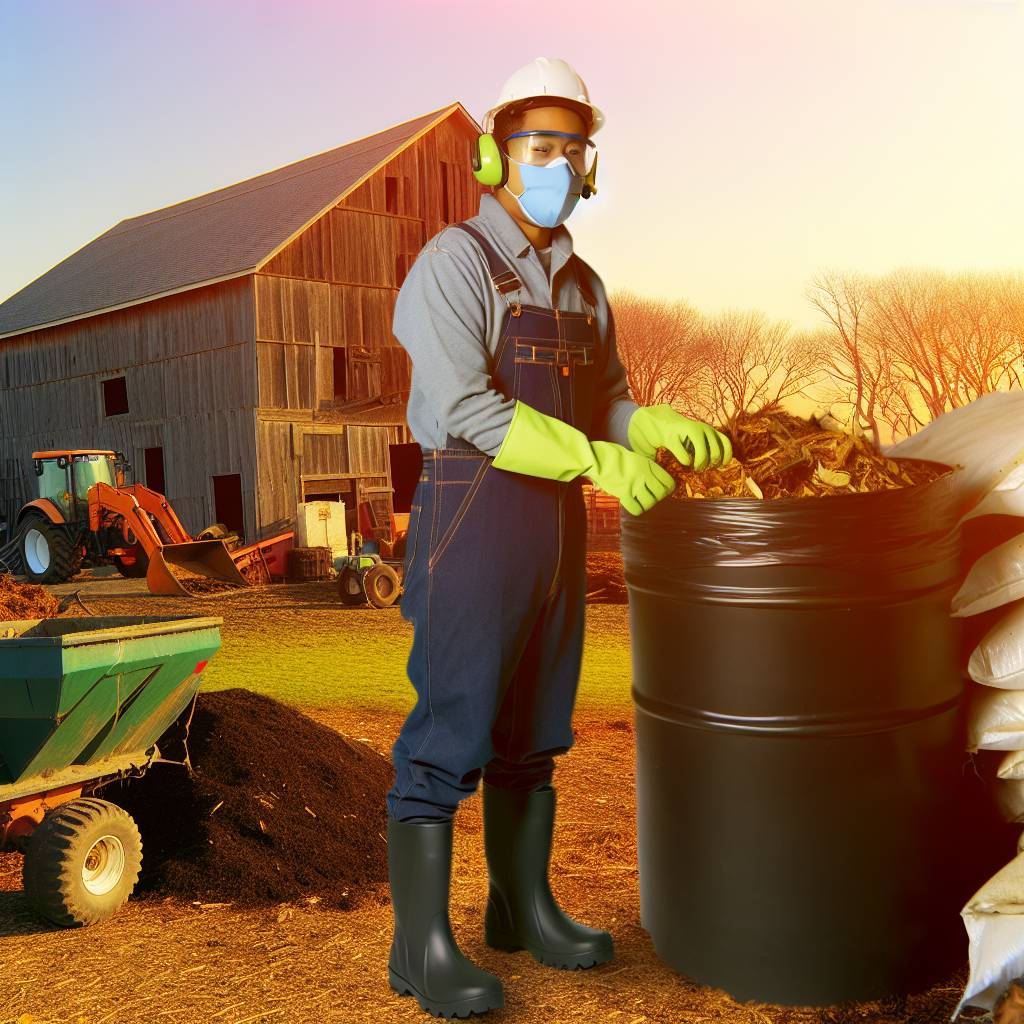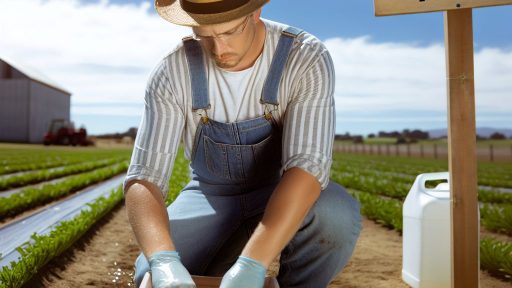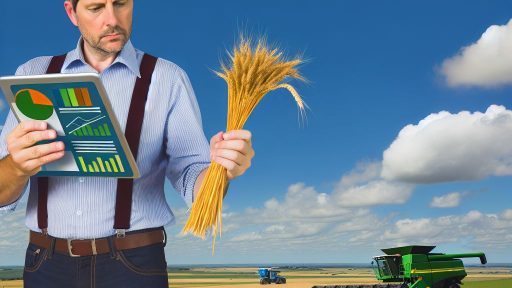Introduction to Farm Waste Management Regulations
Farm waste management regulations play a vital role in sustainable agriculture.
These regulations aim to reduce the environmental impact of farming activities.
They also ensure that farmers manage their waste responsibly.
Farm waste encompasses various materials, including crop residues and animal manure.
Proper management leads to improved soil health and increased productivity.
Additionally, regulations promote public health and environmental safety.
Understanding the Importance of Regulations
Regulations help prevent pollution from agricultural practices.
This includes runoff containing nutrients and pesticides.
Furthermore, they contribute to the conservation of natural resources.
Adequate waste management practices enhance recycling efforts.
As a result, they support closed-loop farming systems.
Key Components of Farm Waste Management Regulations
These regulations consist of several essential components.
- Identification of waste types and sources.
- Protocols for waste storage and disposal.
- Guidelines for composting and recycling materials.
- Monitoring and reporting requirements for farm operators.
Each component plays a significant role in promoting best practices.
Challenges in Compliance
Farmers face numerous challenges in adhering to these regulations.
Many are uncertain about the specific requirements.
Transform Your Agribusiness
Unlock your farm's potential with expert advice tailored to your needs. Get actionable steps that drive real results.
Get StartedAdditionally, the costs associated with compliance can be burdensome.
Training and education are crucial in overcoming these challenges.
Support from agricultural organizations can help improve compliance rates.
Examples of Successful Implementation
Many farmers have successfully implemented waste management practices.
For instance, Emma’s Green Farm uses composting to handle waste.
This practice has improved soil fertility on her farm.
Moreover, it has reduced disposal costs significantly.
Such examples showcase the benefits of adhering to waste management regulations.
Read: Agricultural Policy Changes Affecting Farm Aid
Types of Farm Waste and Their Environmental Impact
Organic Waste
Organic waste includes plant remnants and animal manure.
This type of waste can enrich soil when properly composted.
However, untreated organic waste can lead to methane emissions.
Methane is a potent greenhouse gas that contributes to climate change.
Chemical Waste
Chemical waste involves pesticides and fertilizers.
These substances can contaminate water sources if not managed correctly.
Runoff from farms can carry pesticides into nearby rivers and lakes.
This contamination can harm aquatic life and disrupt ecosystems.
Plastic Waste
Plastic waste stems from packaging and agricultural supplies.
This waste often ends up in landfills or our oceans.
Microplastics can enter the food chain through contaminated soil and water.
Ultimately, these plastics pose risks to both wildlife and human health.
Soil Erosion and Sedimentation
Soil erosion occurs when topsoil is washed away.
This can deplete nutrients essential for plant growth.
Additionally, sedimentation in waterways can block sunlight.
Showcase Your Farming Business
Publish your professional farming services profile on our blog for a one-time fee of $200 and reach a dedicated audience of farmers and agribusiness owners.
Publish Your ProfileThis affects aquatic plants and disrupts the balance of aquatic ecosystems.
Waste Management Strategies
Effective waste management is critical for sustainability.
Farmers can implement practices like composting organic waste.
Additionally, they should carefully manage the use of chemicals.
Using biodegradable materials can also reduce plastic waste.
Moreover, preventing soil erosion requires proper land management techniques.
Utilizing cover crops can help maintain soil health and prevent erosion.
Impact of Farm Waste on Ecosystems
Understanding the types of farm waste enhances awareness of environmental impacts.
Effective waste management strategies promote sustainability and protect ecosystems.
Key Regulations Governing Farm Waste Management
Overview of Farm Waste Regulations
Farm waste regulations help manage agricultural residues effectively.
These rules aim to reduce environmental impact from farming practices.
Moreover, they promote sustainable waste disposal methods.
Federal Regulations
Federal laws set the foundation for waste management practices.
The Resource Conservation and Recovery Act (RCRA) governs waste disposal.
Under RCRA, hazardous waste from farms requires special handling.
This includes defining which materials fall under hazardous waste categories.
State Regulations
States often develop specific regulations that complement federal laws.
For example, Idaho implements the Agricultural Waste Management Plan.
This plan focuses on reducing runoff and enhancing soil health.
States may also establish local guidelines for livestock waste management.
Local Ordinances
Local ordinances can vary widely in agricultural regions.
Some counties impose restrictions on waste burning practices.
Additionally, local zoning laws may define where waste can be disposed.
Farmers must stay informed about local regulations to avoid penalties.
Best Management Practices
Adopting best management practices (BMPs) is vital for compliance.
BMPs guide farmers in effectively managing their waste streams.
For instance, composting organic waste is favored by many regulations.
Similarly, utilizing cover crops can enhance nutrient recycling.
Enforcement and Compliance
Compliance is primarily monitored by environmental agencies.
Violations can lead to fines and corrective actions.
Regular inspections ensure farmers adhere to established regulations.
Thus, understanding regulations can prevent costly mistakes.
You Might Also Like: Comparing Types of Agricultural Insurance for Your Farm
Best Practices for Compliance with Regulations
Understanding Regulatory Framework
Farmers need to familiarize themselves with relevant regulations.
This includes local, state, and federal laws governing waste management.
Staying informed can prevent costly penalties.
Documenting Waste Management Procedures
Maintain thorough records of all waste management activities.
Documentation should include types of waste generated and disposal methods used.
Regular updates will help ensure compliance with regulations.
Implementing Proper Waste Segregation
Effective waste segregation is crucial for compliance.
Showcase Your Farming Business
Publish your professional farming services profile on our blog for a one-time fee of $200 and reach a dedicated audience of farmers and agribusiness owners.
Publish Your ProfileSeparate organic waste from hazardous materials to minimize risks.
Use clearly labeled bins for different types of waste.
Investing in Training for Staff
Provide regular training sessions on waste management practices.
Employees should understand the importance of compliance.
Training will reinforce proper waste handling procedures.
Utilizing Technology for Waste Management
Consider investing in technologies that facilitate better waste management.
Use software for tracking waste disposal and compliance reports.
Automation can streamline processes and reduce human error.
Engaging with Local Environmental Authorities
Establish a relationship with local environmental agencies.
They can provide guidance on best practices and regulatory updates.
Collaboration can enhance compliance and sustainability efforts.
Conducting Regular Audits and Assessments
Perform regular audits of your waste management processes.
Identify areas for improvement and make necessary adjustments.
Audits help ensure ongoing compliance with regulations.
Promoting a Culture of Sustainability
Create a culture that values environmental responsibility.
Encourage all staff to take ownership of waste management practices.
A sustainable mindset will foster compliance and efficiency.
Gain More Insights: Understanding Pesticide Withdrawal Periods
Role of Local and Federal Authorities in Enforcement
Establishing Regulatory Frameworks
Local and federal authorities work collaboratively to establish waste management regulations.
These regulations aim to reduce environmental impact from agricultural practices.
Both levels of government create comprehensive guidelines for waste disposal.
They ensure that farmers understand their responsibilities in waste management.
Monitoring Compliance
Authorities actively monitor compliance with waste management regulations.
They conduct regular inspections on farms to assess waste handling practices.
Inspections help identify violations and educate farmers on best practices.
To achieve compliance, authorities utilize various tools and resources.
For example, they offer training programs for farmers.
Enforcement Actions
When violations occur, authorities take appropriate enforcement actions.
They may impose fines or sanctions on non-compliant farms.
Additionally, enforcement may include issuing warnings to encourage compliance.
Ultimately, the goal is to protect the environment while supporting farmers.
Community Involvement
Local communities play an important role in waste management enforcement.
Community organizations often collaborate with authorities to promote regulations.
They raise awareness about the importance of waste management among farmers.
This partnership enhances overall compliance and environmental stewardship.
Future Directions
Authorities are continuously evolving regulations to adapt to new challenges.
They prioritize research and innovation in waste management techniques.
Future regulations aim to be more flexible and effective for farming practices.
Collaboration with farmers will be essential in shaping these efforts.
Delve into the Subject: Environmental Considerations In Pesticide Use
Showcase Your Farming Business
Publish your professional farming services profile on our blog for a one-time fee of $200 and reach a dedicated audience of farmers and agribusiness owners.
Publish Your ProfileStrategies for Sustainable Waste Reduction on Farms
Implementing Reduce, Reuse, and Recycle Practices
Farmers should actively reduce waste at the source.
This approach minimizes the total volume of waste created.
Implementing composting systems for organic waste is highly effective.
Creating a reuse program for farming materials also encourages sustainability.
Farmers can recycle plastics and metals to reduce landfill burden.
Utilizing Technology for Waste Management
Implement advanced technologies to track waste production.
Data management systems can identify waste patterns and inefficiencies.
Additionally, precision farming technologies optimize input use.
Drones and sensors can monitor crop health, minimizing excess waste.
Overall, technology streamlines operations, reducing waste generation.
Engaging in Community Partnerships
Collaboration with local organizations enhances waste management efforts.
Farmers can join community-supported agriculture (CSA) initiatives.
Local partnerships often facilitate resource sharing and education.
Participating in farmer cooperatives fosters collective waste reduction.
This approach boosts community engagement around sustainable practices.
Implementing Sustainable Livestock Practices
Adopting rotational grazing systems improves land use efficiency.
This method enhances soil health and reduces nutrient runoff.
Utilizing manure as a fertilizer can close nutrient loops effectively.
Moreover, innovating in feed management decreases waste production.
Livestock farmers should monitor and adjust feeding practices for efficiency.
Educating and Training Staff
Regular training for farmworkers is crucial to waste reduction efforts.
Educating staff on sustainable practices enhances overall awareness.
Incorporate waste management strategies into routine training sessions.
Encouraging feedback from workers can lead to innovative ideas.
Building a culture of sustainability among employees fosters commitment.
See Related Content: Building Resilient Farms with Supportive Rural Development Policies

Impact of Non-Compliance: Fines and Legal Consequences
Understanding Non-Compliance Risks
Non-compliance with farm waste management regulations incurs significant risks for farmers.
The consequences can arise from both local and federal regulations.
Understanding these risks becomes essential for lawful operations.
Financial Penalties
Fines for non-compliance with regulations can be substantial.
For example, violation of waste management laws may result in penalties up to $10,000 per day.
Additionally, repeated violations could lead to increased fines over time.
Farmers should be aware that fines vary by jurisdiction.
Ultimately, the cost of non-compliance can accumulate rapidly.
Legal Consequences
Beyond fines, legal actions may follow non-compliance.
Authorities can pursue civil lawsuits against non-compliant farms.
In severe cases, farmers may face criminal charges.
Such legal issues can damage a farm’s reputation significantly.
Moreover, litigation can divert valuable resources away from operations.
Long-Term Effects on Business
Non-compliance can threaten the viability of a farming business.
Showcase Your Farming Business
Publish your professional farming services profile on our blog for a one-time fee of $200 and reach a dedicated audience of farmers and agribusiness owners.
Publish Your ProfileFarmers may lose their operating licenses due to repeated violations.
Additionally, non-compliant farms may struggle to obtain financing.
Businesses can face restrictions on sourcing supplies or selling products.
As a result, long-term financial stability becomes jeopardized.
Importance of Compliance
Compliance with regulations not only avoids penalties but offers benefits.
Adhering to waste management practices helps build a positive public image.
Moreover, compliant farms contribute to environmental health and sustainability.
Ultimately, businesses thrive through responsible waste management practices.
Read: Impact of Subsidies on Modern Farming Practices
Case Studies on Successful Farm Waste Management Initiatives
Innovative Practices in Organic Farming
Green Acres Organic Farm exemplifies effective waste management through composting.
This farm utilizes organic waste to create nutrient-rich compost.
Additionally, they involve the community in their composting efforts.
As a result, this practice improves soil health and reduces landfill waste.
Implementation of Anaerobic Digesters
Sunnyvale Dairy successfully implemented anaerobic digesters to manage waste.
This technology transforms manure into biogas and organic fertilizer.
Consequently, they reduced methane emissions and provided renewable energy.
The farm benefits financially from selling the excess energy produced.
Utilization of Crop Residues
Riverbend Farms has adopted the practice of utilizing crop residues effectively.
They incorporate straw and leftover plant materials back into the soil.
This method enhances soil fertility and reduces erosion.
Moreover, it limits the need for synthetic fertilizers.
Community Engagement and Education
Harvest Hope Farm emphasizes community engagement in waste management strategies.
They offer workshops to educate local farmers on sustainable practices.
This initiative fosters a sense of responsibility towards waste reduction.
Furthermore, it strengthens community ties and encourages collaboration.
Innovative Waste Recycling Programs
Evergreen Hills Farm has initiated an effective waste recycling program.
The program focuses on transforming plastic and packaging waste into new products.
Farmers receive training on how to separate and manage waste efficiently.
This reduces costs and minimizes environmental impact.
Monitoring and Continuous Improvement
Maple Leaf Farm employs a monitoring system for their waste management practices.
This system tracks waste generation and disposal methods regularly.
As a result, they can identify areas for improvement and implement changes.
This proactive approach enhances overall sustainability and compliance with regulations.
Resources and Support for Farmers in Understanding Regulations
Government Programs
Farmers can utilize various government programs for assistance.
The USDA offers resources to help navigate regulations.
State agricultural agencies often provide local support and guidance.
Additionally, farm service agencies assist farmers with waste management compliance.
Educational Workshops
Many organizations host workshops focused on farm waste management.
These workshops cover essential regulations and best practices.
Farmers gain practical knowledge through hands-on training.
Showcase Your Farming Business
Publish your professional farming services profile on our blog for a one-time fee of $200 and reach a dedicated audience of farmers and agribusiness owners.
Publish Your ProfileLocal and regional agricultural extensions often facilitate these workshops.
Online Resources
Farmers can access numerous online resources for information.
Websites like EPA.gov provide detailed guidelines for waste management.
Many organizations offer downloadable materials and toolkits.
Farmers can also find webinars that discuss regulatory changes.
Support Networks
Joining local farming associations can be beneficial.
These networks often share knowledge and experiences among members.
Farmers can ask questions and seek advice on specific issues.
Additionally, mentorship programs connect experienced farmers with novices.
Consulting Services
For personalized assistance, farmers can hire consulting services.
These professionals analyze specific farm operations for compliance.
Consultants can develop tailored waste management plans.
They often keep farmers informed about regulatory updates.




